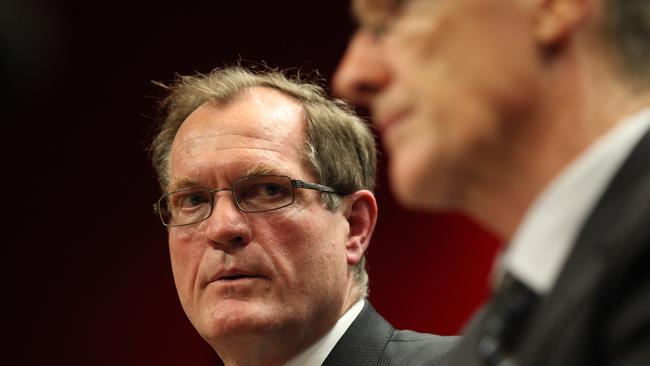Landmark case will reveal the extent of the ATO’s cultural problem
A landmark case against the ATO reveals the need for an independent body to handle tax disputes involving SMEs.

Around Australia, a great many trades people form 50/50 partnerships with their spouse. Contracting by small operators dominated Australia’s resource investment boom. Now, the Australian Taxation Office is attempting to bankrupt a husband and wife contracting partnership, which worked at Port Hedland. The contractor and Independent Contractors Australia have managed to convince a top lawyer to take the case to the Federal Court. It will be a landmark case but the drama behind the suit will determine Australia’s ability to gain work for people in the decade ahead. There have been tax rulings that approve income splitting partnerships because the spouse takes 50 per cent of the partnership liability. Of course, there are also the independent contractor tests — the relationship with the customer/client must be a contractual one and not an employee/employer relationship as set out in the so-called Howard rules.
For some time I have been writing that there is a culture deep in the taxation department which runs counter to the pro-small business attitude of the Tax Commissioner, Chris Jordan and his immediate deputies.
I have written that the reason for the bad culture is the fact the small- and medium-sized business tax department officials are investigator, prosecutor, judge, jury and appeal court. Unlike large companies, the small businessperson does not have the money to go to court and finding lawyers to help is very hard. The tax office has total power. Almost always when people have that sort of all embracing power it results in power corruption (not bribery). And that is what’s I believe happening in the tax office.
The Commissioner, in a face-to-face meeting with me, argued strongly against my contention. He genuinely believes I am wrong about the existence of power corruption deep in his department. And, quite properly, he asked me to show him real cases. I agreed to hold fire until I had a case.
Finding people prepared to go public on tax matters is not easy but now we have at least one live one.
My first case is a situation where the taxpayer is being bankrupted by tax office middle managers for so called “tax evasion”. And, at least on the surface, the victim’s case looks so good that a top tax lawyer has taken on the case.
Accordingly, I must emphasise that most of the facts I describe come from Federal Court documents and their accuracy needs to be determined by the court. And the court, having determined the real facts, must then decide whether there has been tax evasion.
My contractor is 55-year-old mining engineering consultant Rod Douglass who is well known in the WA resource industry because he has been a contractor for a long time.
Around 2005, he formed a partnership with his then wife to undertake contracting in the WA boom.
At the time, he verbally checked the status of his partnership with the tax office. It was during the reign of the wonderful Australian Tax Commissioner Michael Carmody, who raised enormous revenue because he implemented trust standards. Michael Carmody put out a special Part 1VA statement, referring to a court decision, that gave tax clearance to income splitting partnerships with a spouse, provided that the spouse took shared liability.
In 2009, Rod Douglass divorced and the partnership ended. In 2011 he remarried and started a new partnership based on the 2005 Carmody ruling. Then, in 2015, the tax office contacted Rod and later claimed he had committed evasion and had made false and misleading statements. The ATO middle managers made much of the fact that Rod could not find the Carmody statement that mentioned the legal case. Rod Douglass will allege in court that the reference to a legal case has been secretly edited out of the Carmody statement on the ATO website. Independent Contractors Australia believes they have found the original Carmody statement. The authenticity of that discovered statement would need to be determined by the court,
Normally in these cases all the internal taxation emails become court records and are public. As we have seen in recent cases alleging bank misconduct, emails can reveal the true culture of the people doing the work. If I am right about the anti-small business culture in the tax office, it will come out in the emails. Some emails have been released but the tax office is opposing full release of the emails because they say it will reveal how the tax office operates. I will let the court decide whether that excuse is valid and whether the pubic interest would be served if the way the tax office worked was disclosed.
Rod’s partnership obtained more than 80 per cent of its revenue from one source. Therefore it must comply with the so-called results test. (Of course the Carmody ruling appears so clear that it is arguable whether the Howard legislation does not apply.)
John Howard understood small business very well and was careful to insert in the results test an overriding clause that allowed partnerships to be contractors if they complied with normal industry practice. In mining, the specific task is to complete the project and contractors must do it because this is not an on going task and is finished when the plant is completed. As a result, thousands of contractors were used in the resources investment boom.
The tax commissioner’s middle managers declared that because the Douglass partnership involved income splitting and had gone back many years, Rod should be billed for evasion, including interest and penalties, totalling about $500,000. It was the inescapable intention of the tax officials to bankrupt him.
Whatever happens in this case, significant amounts will be involved. If the tax office wins, then Rod will be bankrupted and be required to sell all his assets. The precedent could be used to change mining plant construction in Australia and destroy many husband and wife partnerships around the land.
If Rod wins, he will be seeking costs plus substantial damages ($1.5 million or three times the $500,000 claim would be normal). A public apology and full disclosure would also be part of the Douglass demands.
Again, in my view, if Rod wins — and I emphasise that this is a matter for the Federal Court — then taxpayers should not have to foot the bill. The taxation employees should be personally liable for any proved malfeasance or targeted malice. Such matters should not always be covered by insurance.
And, depending on the revealed facts and those emails, Chris Jordan should consider admitting that he has a cultural problem in his middle ranking staff. What’s needed is an independent appeal body with the power to make rulings and therefore stop the corruption of power.
Footnote: The tax office has called for talks with Rod Douglass’s lawyer.





